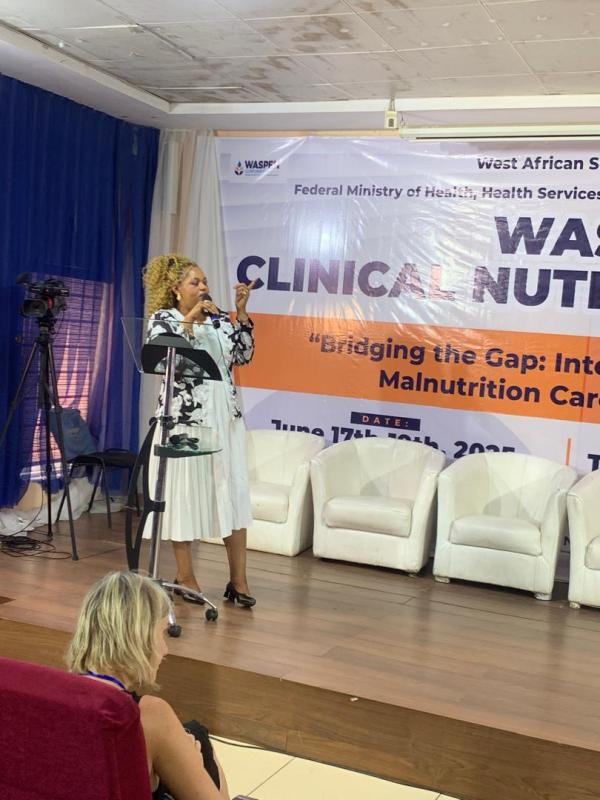
At the WASPEN 2025 Clinical Nutrition Conference held at the Trauma Center of the National Hospital in Abuja, under the theme "Bridging the Gap: Integrating Hospital and Community Malnutrition Care in Developing Countries." The pressing issue of malnutrition took center stage as Pharm. Chisom F. Uchem, Executive Secretary/CEO of the Anambra State Primary Healthcare Development Agency, delivered a compelling speech on Thursday, June 19, 2025 where she emphasized the immediate need for investment in nutrition services to combat this critical public health crisis.
Defining malnutrition as an imbalanced intake of nutrients, Uchem illuminated its various forms, including undernutrition—manifested as stunting, wasting, and micronutrient deficiencies—as well as overnutrition, which leads to obesity. She highlighted that almost 40% of Nigerian children under five are stunted, with many facing hidden hunger—deficiencies in essential vitamins and minerals despite consuming adequate calories.
The prevalence of malnutrition, particularly in vulnerable groups such as children, pregnant women, and the elderly, remains a daunting challenge for Nigeria. Issues like poor infant feeding practices, food insecurity, and limited access to quality nutrition services exacerbate the situation. Uchem pointed out alarming statistics from the National Demographic and Health Survey (NDHS, 2023), indicating widespread deficiencies in vital nutrients like vitamin A, iron, and iodine, which significantly impact overall health and productivity.
She asserted, “Malnutrition is both a health and economic emergency. The cost of inaction is far greater than the cost of intervention.” Highlighting the economic burden, she noted that malnutrition reduces productivity and increases healthcare costs, leading to over $1.5 billion lost in GDP annually in Nigeria.
Uchem advocated for a multifaceted approach to tackle malnutrition, which includes improving agricultural practices, food fortification, and integrating nutrition services within healthcare frameworks. She stressed the importance of building the capacity of frontline health workers and fostering multisectoral collaborations to effectively address the root causes of malnutrition.
Attendees were urged to prioritize nutrition in public health policy and community initiatives, reinforcing that lasting solutions require coordinated efforts across multiple sectors. “Let’s act now—because the future of Nigeria depends on it,” she declared, inspiring a proactive commitment to ensuring better nutritional outcomes for all. Uchem's pressing call for immediate action resonates, aiming to mobilize resources and awareness to combat malnutrition in Nigeria.






















